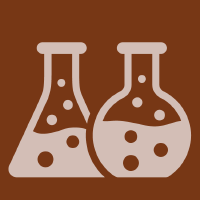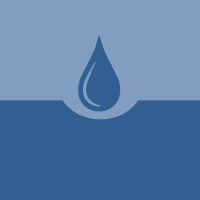Topic Menu
► Topic MenuTopic Editors



Wastewater Treatment by Physical, Chemical, Photochemical, and Biological Processes, and Their Combinations
Topic Information
Dear Colleagues,
Due to the limitations of individual physical, chemical, photochemical, or biological processes in their effectiveness or economic feasibility, most processes are not cost-effective or efficient on their own to treat wastewaters, such as high-strength wastewaters. Advanced oxidation processes (AOPs) are alternatives to treat wastewaters containing non-biodegradable, toxic, inhibitory, and recalcitrant organic contaminants. Although the main advantages of AOPs are their destructive and non-selective nature, as well as their high rates of reactions in comparison to biological processes, they may not be cost-effective on their own. An alternative treatment is the biodegradability enhancement of wastewater by a photochemical pre-treatment or post-treatment using AOPs. Therefore, the focus of this topic is on the latest developments in all AOPs, including photochemical reaction engineering, photoreactor design and kinetics, photocatalyst development, biological processes for wastewater treatment including high-strength actual wastewaters, biokinetics, technical improvements for municipal wastewater treatment plants including process control, and/or combinations of different physical, chemical, photochemical, and biological processes to maximize organic degradation in wastewater while being cost-effective.
Prof. Dr. Mehrab Mehrvar
Dr. Edgar Quiñones-Bolaños
Dr. Ciro Bustillo-Lecompte
Dr. Samira Ghafoori
Topic Editors
Keywords
- photochemical reaction engineering
- advanced oxidation technologies
- biological wastewater treatment
- biokinetics
- combined AOPs with other processes including biological processes
- high-strength wastewater treatment
- actual wastewater treatment
- optimization and modelling of combined processes for wastewater treatment
- industrial wastewater treatment applications
Participating Journals
| Journal Name | Impact Factor | CiteScore | Launched Year | First Decision (median) | APC | |
|---|---|---|---|---|---|---|

Bioengineering
|
3.7 | 5.3 | 2014 | 19.2 Days | CHF 2700 | Submit |

Catalysts
|
4.0 | 7.6 | 2011 | 16.6 Days | CHF 2200 | Submit |

Processes
|
2.8 | 5.5 | 2013 | 16 Days | CHF 2400 | Submit |

Sustainability
|
3.3 | 7.7 | 2009 | 19.3 Days | CHF 2400 | Submit |

Water
|
3.0 | 6.0 | 2009 | 19.1 Days | CHF 2600 | Submit |

Preprints.org is a multidisciplinary platform offering a preprint service designed to facilitate the early sharing of your research. It supports and empowers your research journey from the very beginning.
MDPI Topics is collaborating with Preprints.org and has established a direct connection between MDPI journals and the platform. Authors are encouraged to take advantage of this opportunity by posting their preprints at Preprints.org prior to publication:
- Share your research immediately: disseminate your ideas prior to publication and establish priority for your work.
- Safeguard your intellectual contribution: Protect your ideas with a time-stamped preprint that serves as proof of your research timeline.
- Boost visibility and impact: Increase the reach and influence of your research by making it accessible to a global audience.
- Gain early feedback: Receive valuable input and insights from peers before submitting to a journal.
- Ensure broad indexing: Web of Science (Preprint Citation Index), Google Scholar, Crossref, SHARE, PrePubMed, Scilit and Europe PMC.


